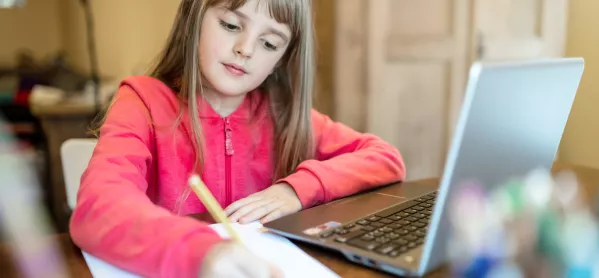Scotland’s education secretary has said pupils will need to be able to access learning at home under contingency plans should Covid-19 “get out of control again.”
John Swinney has vowed that no pupils will be “left behind” in terms of digital access, as he said blended learning - learning at home and at school - remained a necessary part of planning for future disruption caused by the coronavirus.
Schools across Scotland were reopened by 18 August after the Scottish government’s previous plans for blended learning, with pupils learning at home for part of the school week, received an angry reaction from some parents and opposition politicians.
Analysis: How to get blended learning right
Campaigners: ‘Home learning plans are not good enough’
Concerns: Heads fear online learning will not reach all pupils
Mr Swinney’s made his comments as the Digital Schools Awards programme, which recognises schools and teachers making digital technology part of the curriculum, was set to incorporate blended learning in its criteria.
Coronavirus: The importance of blended learning for schools
Among the plans are to provide resources such as more project work that can be carried out in the classroom or at home.
Mr Swinney said: “The experience of lockdown shows that access to technology and digital capability is, and will remain, a fundamental aspect of education in Scotland.
“We know that the effects of the pandemic will be long-lasting, and individual circumstances mean not every family will have had access to such technology, but we will ensure that no young person is left behind.
“We are grateful to councils and teachers for their hard work on a blended learning model, and that remains a necessary contingency plan should the virus get out of control again at any point.”
He added: “The addition of blended learning to the digital schools award framework will help to give schools recognition for the hard work they have been doing and will continue to do during this time.
“Through the Education Recovery Group, we continue to work closely with councils, parent bodies, teachers’ representatives and trades unions to ensure that plans are developed collaboratively to prepare for a blended learning mode, should that be required.”
Mr Swinney highlighted the Scottish government’s £30 million investment to provide computers for disadvantaged children and young people, with 70,000 devices expected to be provided in the coming weeks.
This includes £25 million for digital devices for school pupils to enable them to study online.
Anna Doody, programme manager at the Digital Schools Awards, which 54 per cent of Scotland’s schools take part in, said: “Our programme was established with the sole objective of supporting schools in the fast-developing world of digital technologies.
“Recent developments have shown that digital skills are not only beneficial but essential to modern education.
“We see blended learning playing a crucial role in education moving forward, and its addition to our programme will help schools review their current digital learning and teaching practices.”




